News
Apr 10 2025
BCIS Alumni Story
"Rather than thinking alone, I prefer sitting down with friends from different disciplines, having a coffee, and discussing ideas." This isn’t a socialite talking about lifestyle, but Naike's simple summary of his research "secret." A biochemist who graduated from BCIS in 2017, Naike is currently pursuing a PhD in Chemistry at MIT and conducting research in the lab of renowned professor Catherine L. Drennan, focusing on a special key to life: metal enzymes.
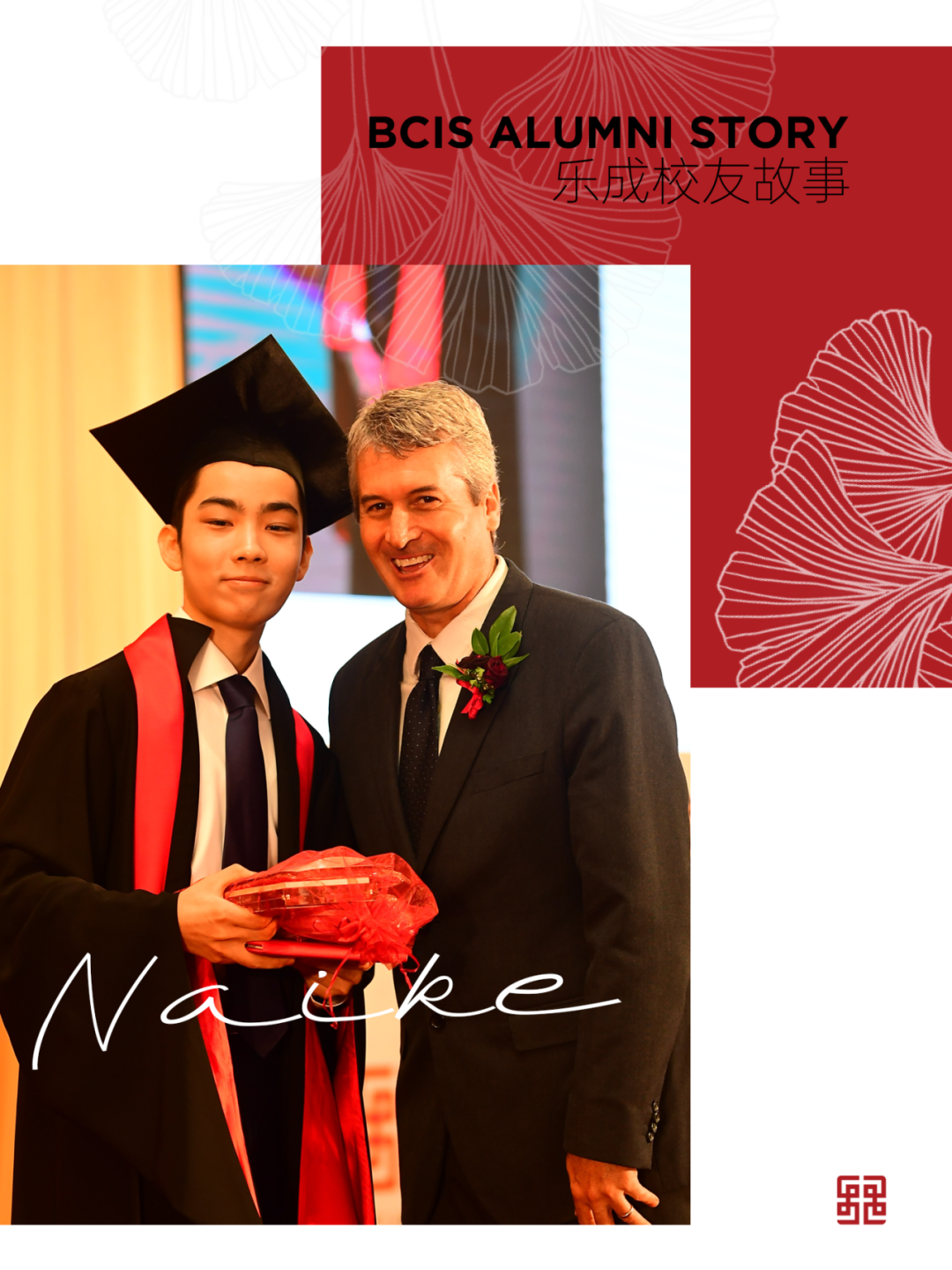
At MIT, Naike’s microscope is focused not only on the miniscule world of enzyme molecules but also on the future of humanity’s response to environmental crises. His research is centered on a bacterial enzyme found on aquatic plants like duckweed—these tiny protein catalysts might hold the key to solving pollution problems.
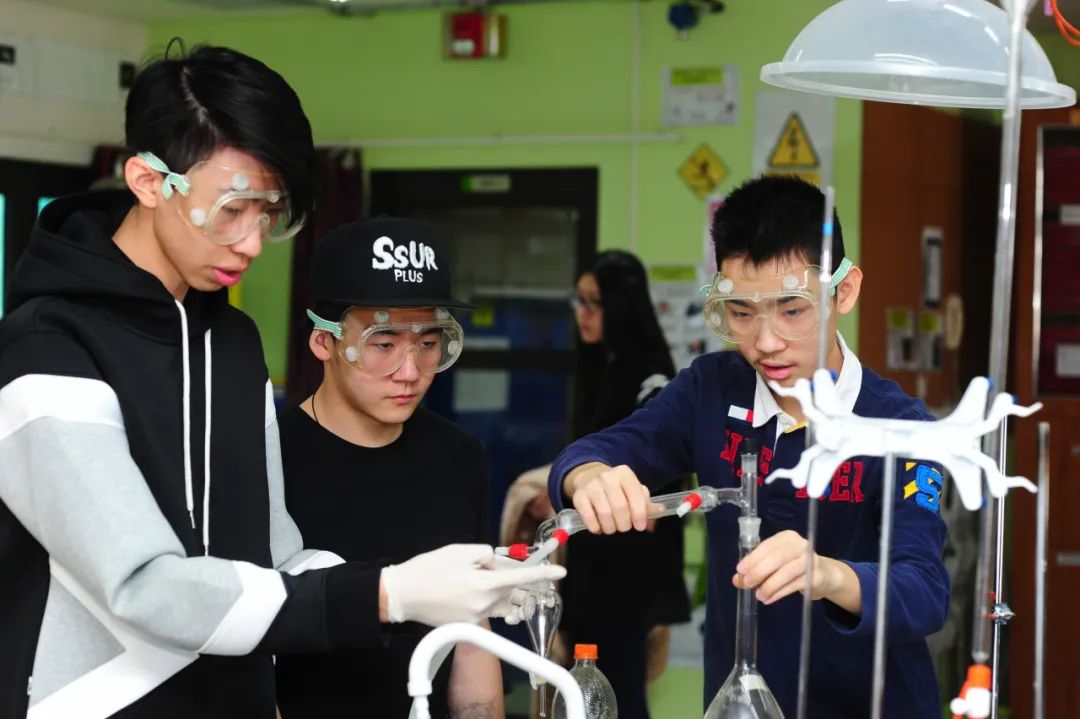
"Enzymes are the accelerators of life, and my mission is to make them accelerate the solution to Earth’s challenges," says Naike. His work aims to understand the molecular mechanisms by which enzymes catalyze toxic substances, providing a scientific foundation for designing new eco-friendly enzymes. This seemingly complex topic is deeply connected to his growth at BCIS.
Naike explains, "Entering the lab was not just a career choice but a journey that started from my passion." In high school, his love for chemistry earned him an academic scholarship at BCIS, and with his teacher’s encouragement, he wrote an Extended Essay (EE) on molecular modeling. This paper not only helped him apply for research projects at university but also marked the beginning of his journey into environmental science. He believes BCIS always encouraged him to "follow his interests," planting the seed for scientific research during his student years.
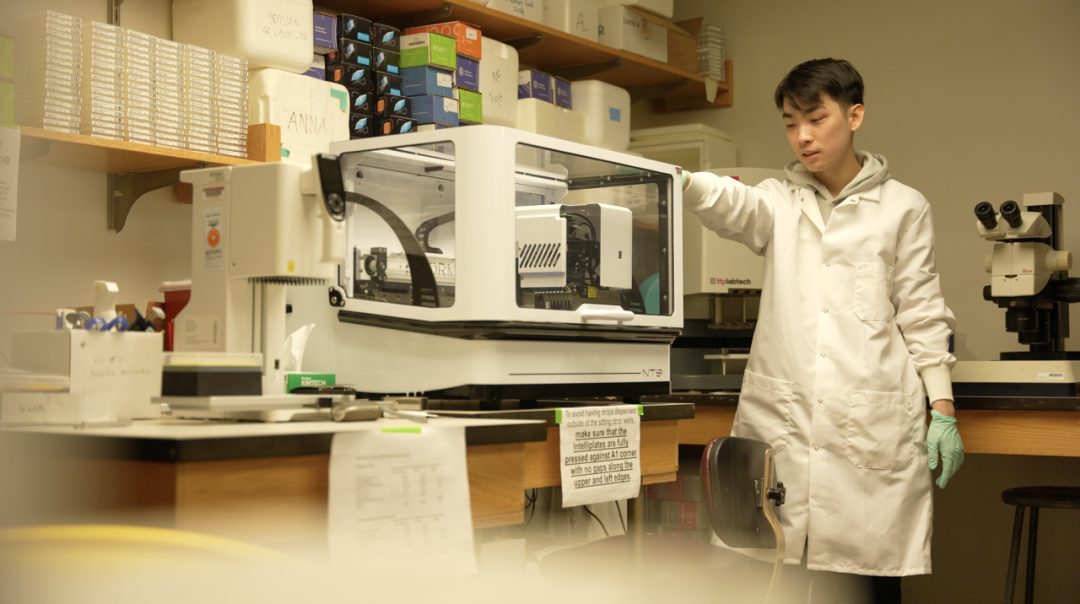
Even in 2020, while the pandemic disrupted the world, Naike’s love for science could not be stopped. He spent his time in BCIS's alumni study room, preparing for graduate school applications and exams, while also volunteering to help high school teachers. He served as a teaching assistant for online physics classes, influencing and encouraging younger students. "BCIS taught me not only the knowledge but also the responsibility to pass it on," he says. This sense of responsibility is now reflected in every piece of data and every experiment he conducts in the MIT lab.
In biochemistry, enzymes are often seen as highly efficient biological molecules that catalyze reactions. However, in Naike’s research, "catalyst" is not just about chemical reactions—it’s about the collaborative spirit that drives scientific progress.
As a researcher with a chemistry background, Naike now stands at the forefront of biochemistry. He admits that his "specialization" sometimes has its "blind spots," but it is the colleagues from fields like biology, engineering, and materials science who provide diverse perspectives that make the team’s research results more comprehensive.
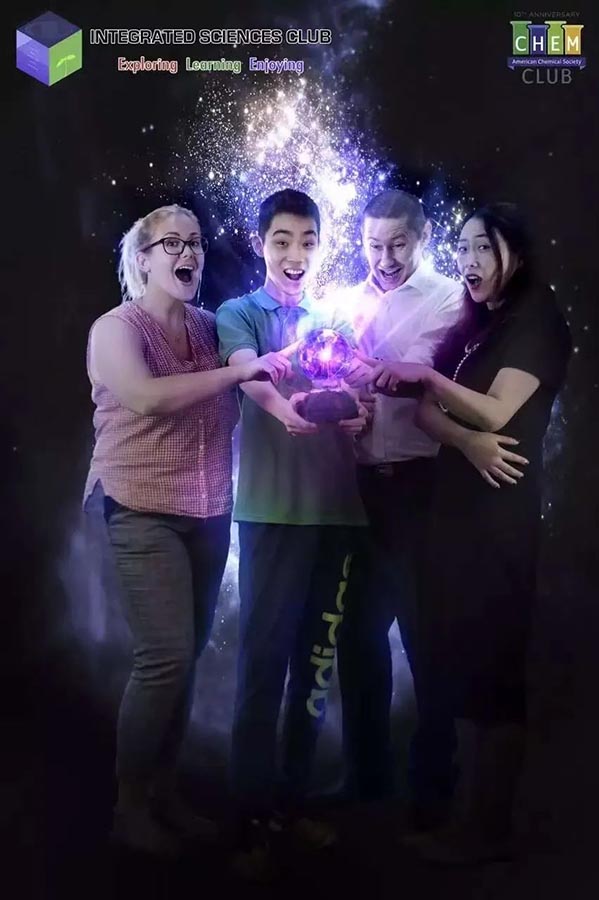
"Interdisciplinary collaboration is not just a slogan but a daily reality. It’s like the Group 4 Project we did in the IB program at BCIS, where we needed perspectives from different subjects," he recalls. In high school, he worked with classmates from different disciplines to develop a portable water filter for field research—some focused on design feasibility, others studied the chemical reactions to remove pollutants, while some modeled biological behaviors. The intersection of technology and science taught him that real breakthroughs often come from the borders between disciplines.
This interdisciplinary mindset paid off in 2021 when Naike collaborated with two BCIS alumni—physicist Zekai and mechanical engineer Yuchen—to co-author a paper on COVID-19 drug modeling, published in the well-known journal Drug Discovery Today before clinical applications. The three combined their expertise in chemistry, physics, and engineering to apply density functional theory to virus receptor studies. "Our 'classmate' friendship was the catalyst that sparked a wonderful reaction across different fields," Naike says. This paper was not just an academic achievement; it was a testament to BCIS’s educational philosophy of integrating culture and cross-disciplinary learning.
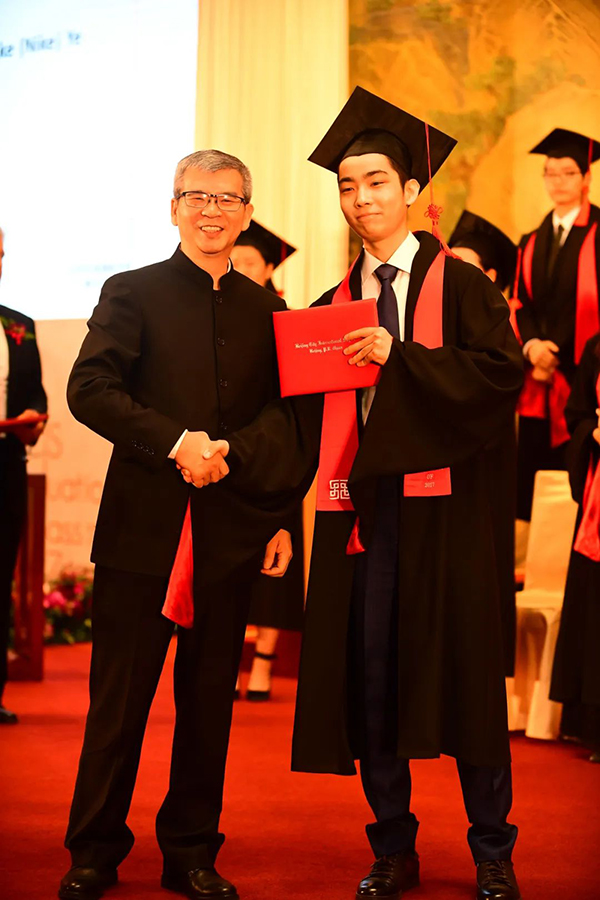
Naike believes that in the world of scientific research, effective "catalysis" comes not only from chemical reactions but also from communication and understanding between people. From a shy and introverted student, he has grown into a confident and composed researcher. This ability to think across disciplines and from diverse perspectives is something he developed over his years at BCIS. "BCIS gave me not only lab skills but also the courage to break down disciplinary barriers," he says.
He fondly remembers receiving an academic scholarship at BCIS, and he is grateful to his English and math teachers, as well as his physics teacher who encouraged him to be himself. Now, standing at one of the world’s top research platforms, Naike continues to write his story of science, collaboration, and responsibility. And the journey started at BCIS.
When asked what advice he would give to current students, he said:
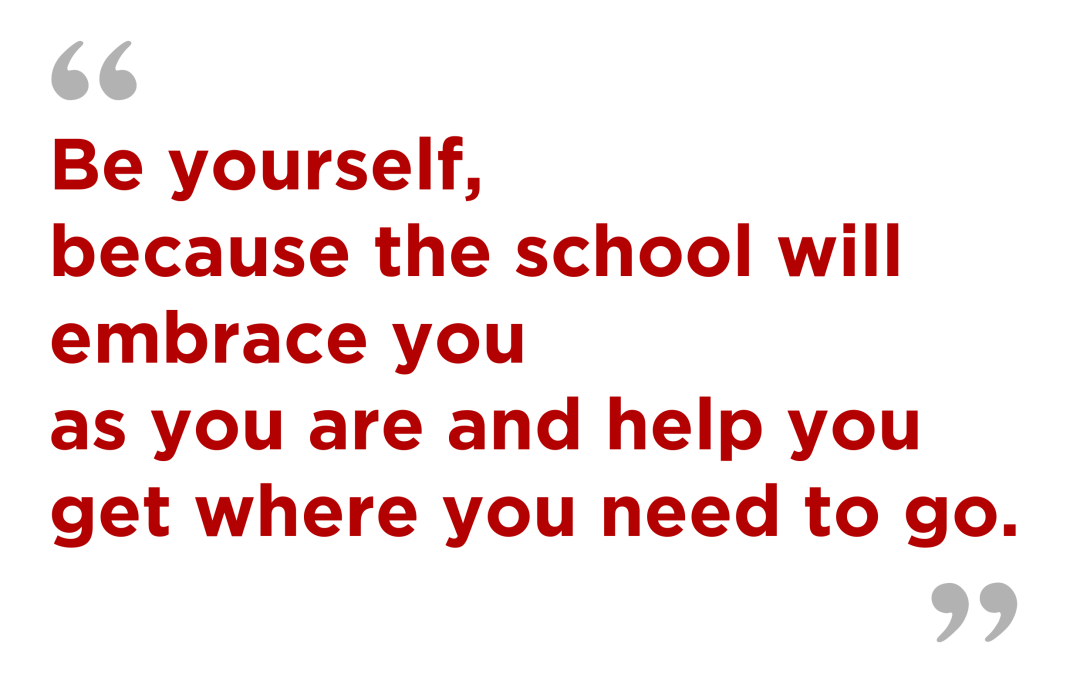
At BCIS, everyone can find their own catalyst—it might be a teacher’s words or an interdisciplinary project. What’s important is to always maintain a thirst for the unknown and let education be the catalyst that changes the world.




